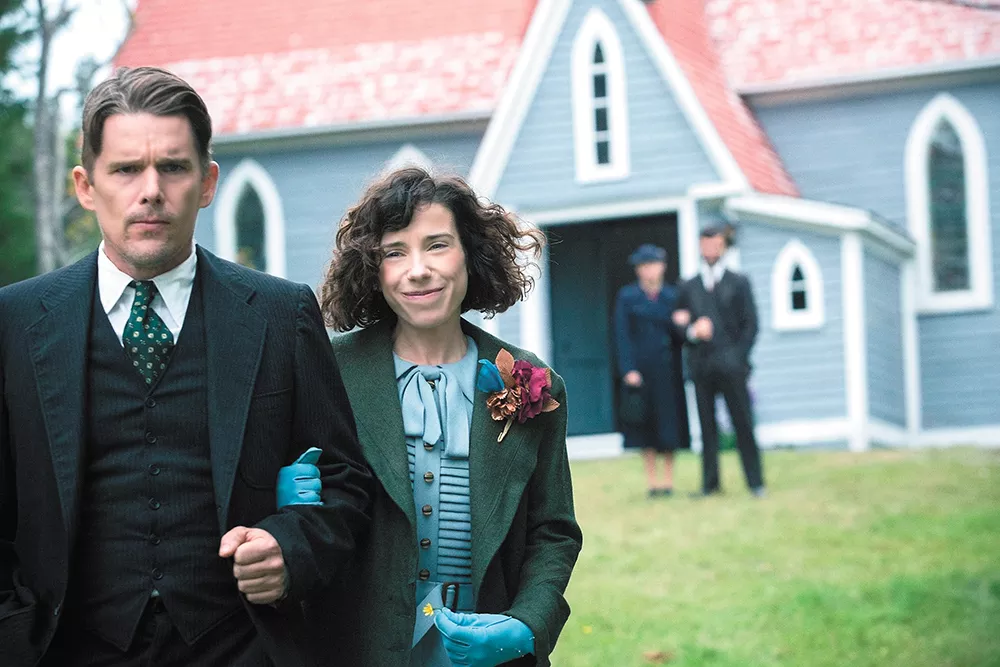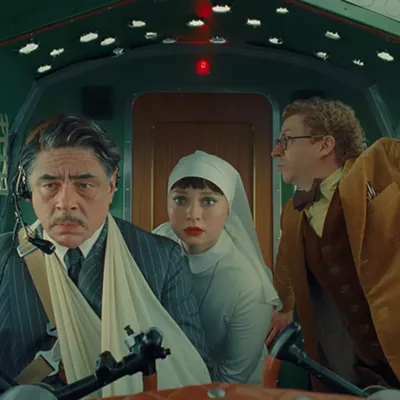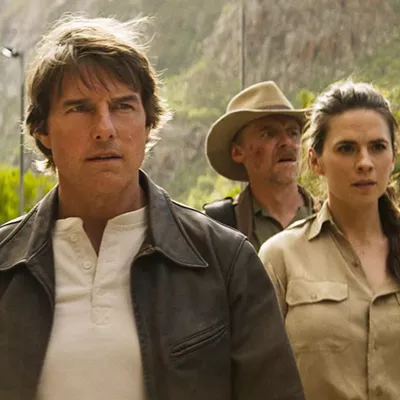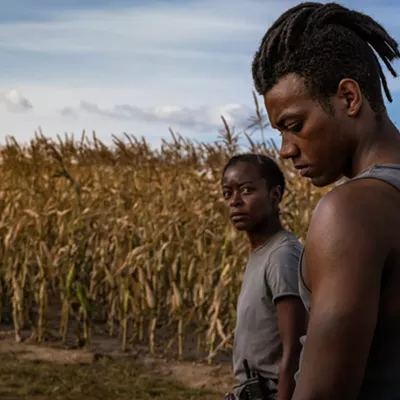Maudie doesn't start out like your typical biopic, so it's disappointing when it finally begins behaving like one. It chronicles the life and career of Canadian painter Maud Lewis, prolific despite suffering from rheumatoid arthritis, and its first half is structured like a two-person character study of Lewis and her husband Everett. It's occasionally quite moving as a domestic drama; as a portrait of an artist's vision, however, it's kind of empty.
Lewis isn't as well known in America as she is in her native country, where her modest and colorful scenes of life in rural Nova Scotia became a minor sensation in the mid-1960s. Richard Nixon even purchased a handful of Lewis works while he was vice-president. She produced hundreds, if not thousands, of paintings, which she sold for just a few dollars from the front door of her own home.
She's played in Maudie by Sally Hawkins, who brings an impish charm and a lacerating wit to the role. Maud first meets Everett (Ethan Hawke), the local fishmonger in the small coastal community of Marshalltown, when she overhears him placing an ad for a housemaid in the general store. She soon moves into his drafty, one-room shack, even though Everett's household hierarchy places Maud well below the chickens in the backyard.
Everett communicates almost exclusively through grimaces, grunts and the occasional outburst. He whipsaws violently between emotional poles, regarding Maud with respect one moment and then slapping her when she speaks out of turn. But his begrudging acceptance inevitably melts away into genuine (albeit subdued) affection, and they're soon married, despite the fact that Maud is still treated as something of an employee.
And when her daily chores are done each day, she paints. Maud brings a brightness to the house, both literally and figuratively, covering every surface in Everett's place (including the windows) with vividly colored flowers and animals. And as she accompanies Everett on his deliveries, she discovers that the customers on his route are willing to purchase her whimsical, postcard-sized paintings.
But those paintings get short shrift in the film, and that's too bad. There are only fleeting references to her methods and inspirations, and even then they're merely platitudes about trusting your instincts and staying true to your vision. Director Aisling Walsh and screenwriter Sherry White are more concerned with the Lewises' daily routines and their ever-shifting personal dynamics, and while those scenes are well-acted and occasionally insightful, they don't do anything to illuminate Maud's drive as an artist.
The film also succumbs to all the tired biopic-isms that it initially seems like it's going to avoid. There's even an on-the-nose montage in which the relatives who previously shunned Maud (including a religiously devout aunt and a money-grubbing brother) ruefully watch a news report detailing her artistic successes. It's also hampered by a saccharine musical score, which is too intrusive and almost desperately folksy.
Through all of this, though, Hawkins is unquestionably terrific. She continues to prove that she's an underappreciated treasure, and she's been doing consistently great work since breaking out in Mike Leigh's brilliant Happy-Go-Lucky nearly a decade ago. She's always convincing as Maud Lewis, even as she grows frail and stoop-shouldered in her late 60s. (The movie follows her until her death in 1970.) Less convincing is Hawke, who seems both too modern and too put-together to play a weathered, hard-bitten loner.
Maudie is a noble film, to be sure, but if there's any insight into what made Maud Lewis tick, it comes entirely from Hawkins' performance. ♦




















